
Star Simpson
I like to build things, and fly gliders.
I work at ThereCraft.
My eyes are far bigger than my bookshelf.
Projects
-
 2017
2017 -
 2017
2017 -
 2012
2012 -
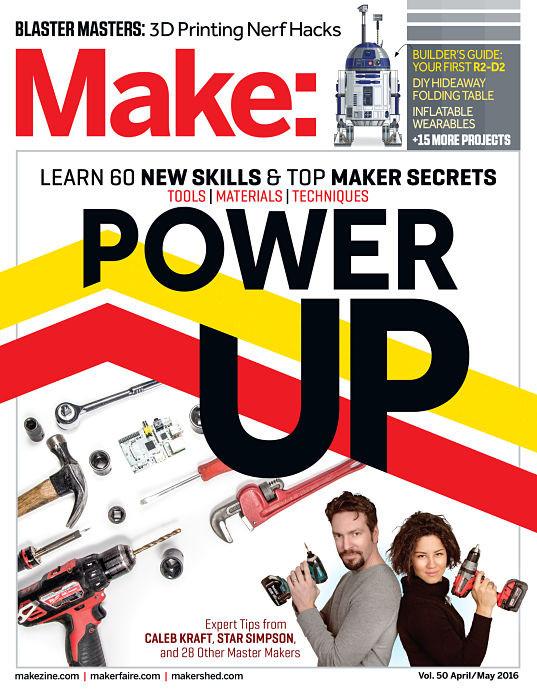 2016
2016 -
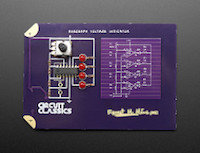 2016
2016 -
 2016
2016 -
 2007
2007 -
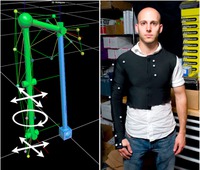 2007
2007 -
 2013
2013 -
 2014
2014 -
 2012
2012 -
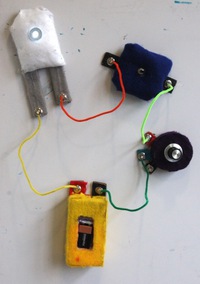 2008
2008 -
 2009
2009 -
 2011
2011 -
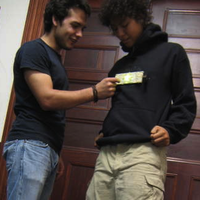 2007
2007 -
 2011
2011 -
 2010
2010 -
 2007
2007 -
 2006
2006 -
 2008
2008 -
 2011
2011 -
 2009
2009
Photos
Click for larger versions
-

Photo by Adafruit (CC by-nc-sa 2.0)
-

The baby photo — Hawaii, 1990
Let me tell you how much I still love a good mango.
Quotes
-
A specialist is a barbarian whose ignorance is not well-rounded.
Stanislaw Lem, "His Master's Voice"
-
In the beginning, hardware was open. Early consumer electronic products, such as vacuum tube radios, often shipped with user manuals that contained full schematics, a list of replacement parts, and instructions for service. In the 80′s, computers often shipped with schematics. For example, the Apple II shipped with a reference manual that included a full schematic of the mainboard, an artifact that I credit as strongly influencing me to get into hardware. However, contemporary user manuals lack such depth of information; the most complex diagram in a recent Mac Pro user instructs on how to sit at the computer: "thighs slightly lifted", "shoulders relaxed", etc.
Bunnie Huang, " Why the Best Days of Open Hardware are Yet to Come"
-
I don't believe in free will, even though I use it. Kind of like petroleum.
Tim Anderson (in personal communication)
-
Perhaps it's because they are the most consistent losers when it comes to understanding the world that we love scientists so much, tell them constantly that they are the only true beacons we have pointing out what is true; we shower them with grants and money for large experiments and take away funding from the arts.
Richard Gabriel, " The Art of Lisp & Writing"
-
“Is it worth it?” asked the system administrators. “Is your precious science worth the costs?” Is it? I would argue yes. While running climate simulations on a machine using megawatts of power to pin down climate change may seem a tad ironic, the reality is these machines are also powering simulations informing our nuclear fusion and alternative energy research. And astrophysics? That I’ll be talking more about, of course, but my basic belief is that pursuing a subject like theoretical physics, pushing the boundaries of human knowledge of the cosmos ever beyond our imaginations, is one of the things that make our climate and humanity so precious. In Robert Wilson’s words: “Senator, particle physics research is not likely to aid in the defense of our nation, but it will make our nation worth defending.”
But I will take the system administrators pleas to heart. While the support community tackles the greening of the infrastructure, out of financial and environmental necessity, I can do my part by always being mindful of the consequences of my code design and implementation, however abstract it may be at the inception. A bad algorithm or a poor debugging strategy is a waste of an afternoon on the smaller scale, but on the petascale can have a serious negative environmental impact.
-
"I said, 'I'm paying my tuition to have the entire faculty as business consultants. I recognize that is not consistent with your model, which is, You know better than I and I have to take this much math and these electives, and all that stuff is valuable, but right now I'm focused, I'm allowed to make a rational decision, I can pay you this tuition and avail myself of this extraordinary faculty, but I'm not going to waste my time in class because the opportunity costs would be too high.'"
Dean Kamen, " Esquire: How Dean Kamen's Magical Water Machine Could Save the World"
-
"At the time we started Genentech, there was no such thing as genetic engineering. I said, 'what if God or Darwin won't let us make a new life form?'"
Tom Perkins, "Something Ventured" (2011)
-
"In the matter of reforming things, as distinct from deforming them, there is one plain and simple principle; a principle which will probably be called a paradox. There exists in such a case a certain institution or law; let us say, for the sake of simplicity, a fence or gate erected across a road. The more modern type of reformer goes gaily up to it and says, “I don’t see the use of this; let us clear it away.” To which the more intelligent type of reformer will do well to answer: “If you don’t see the use of it, I certainly won’t let you clear it away. Go away and think. Then, when you can come back and tell me that you do see the use of it, I may allow you to destroy it."
-
"Most people think they know what they are good at. They are usually wrong. People know what they are not good at more often — and even there people are more often wrong than right. And yet, one can only perform with one's strengths. … There is only one way to find out: the feedback analysis. Whenever one makes a key decision, and whenever one does a key action, one writes down what one expects will happen. And nine months or twelve months later, one then feeds back from results to expectations. I have been doing this for some fifteen to twenty years now. And every time I do it, I am surprised. And so is every one who has ever done this.
Peter Drucker, "The Essential Drucker"
-
You don't manage people, you manage things. You lead people.
Grace Hopper
-
A symptom to look for is the recurrent "crisis," the crisis that comes back year after year. A crisis that happens a second time is a crisis that must not occur again.
Peter Drucker, "The Essential Drucker"
-
Hofstadter's Law: It always takes longer than you expect, even when you take into account Hofstadter's Law.
Douglas Hofstadter, Gödel, Escher, Bach: An Eternal Golden Braid
-
I show up in my writing room at approximately 10 a.m. every morning without fail. Sometimes my muse sees fit to join me there and sometimes she doesn't, but she always knows where I'll be. She doesn't need to go hunting in the taverns or on the beach or drag the boulevard looking for me. Sitting around waiting for inspiration is for amateurs. If you're a professional, you go to work every day, even though frequently it seems more like play than work, which is what keeps me doing it.
Tom Robbins, "Even Cowgirls Get the Blues"
-
I was thinking of the immortal words of Socrates, who said, "... I drank what?"
Chris Knight, ("Real Genius", 1985)
-
- Monomania is a prerequisite of success
- Lack of charisma can be fatal
- Protect me from what I want
Jenny Holzer, various installations
-
You'll never make the grade unless you are decisive: even a timely wrong decision is better than no decision. The final thing you'll need to know is: don't half-heartedly wound problems — kill them dead. That's all there is to it.
Kelly Johnson, via "Skunk Works: A Personal Memoir of My Years of Lockheed"
-
Man is not just a social but also a territorial animal; it must be part of our agenda to satisfy those basic instincts of tribalism and territoriality.
Norman Tebbitt, via " Shoplifters of the World Unite: Slavoj Žižek on the meaning of the riots"
-
If you can see a bandwagon, it's too late to jump on.
James Goldsmith, (source sought)
-
People only complain about things they can do something about. We don't complain about the things we have no power over. Have you ever heard anyone complain about gravity? No, never. Have you ever seen an elderly person all bent over with age walking down the street complaining about gravity? Of course not.
Jack Canfield, "The Success Principles: How to Get from Where You Are to Where You Want to Be"
-
Nobody tells this to people who are beginners, I wish someone told me. All of us who do creative work, we get into it because we have good taste. But there is this gap. For the first couple years you make stuff, it’s just not that good. It’s trying to be good, it has potential, but it’s not. But your taste, the thing that got you into the game, is still killer. And your taste is why your work disappoints you. A lot of people never get past this phase, they quit. Most people I know who do interesting, creative work went through years of this. We know our work doesn’t have this special thing that we want it to have. We all go through this. And if you are just starting out or you are still in this phase, you gotta know its normal and the most important thing you can do is do a lot of work. Put yourself on a deadline so that every week you will finish one story. It is only by going through a volume of work that you will close that gap, and your work will be as good as your ambitions. And I took longer to figure out how to do this than anyone I’ve ever met. It’s gonna take awhile. It’s normal to take awhile. You’ve just gotta fight your way through.
Ira Glass
-
Confidence. The study of an unknown bioluminescence system is not routine work. During the study, the work will encounter various difficulties and problems that need to be solved in order to make progress. Some of them might be easily solved, but some might take weeks or months to resolve, although all difficulties will eventually be overcome if one persists. If you persist and manage to solve a difficult problem, you will build confidence in yourself, which will empower you to solve further difficulties. Therefore, it is important to solve the first difficult problem you encounter. If you give up once, you will probably give up the next time.
Osamu Shimomura, "Bioluminscence: Chemical Principles and Methods"
-
M: How much should you write in a day?
E.H.: The best way is always to stop when you are going good and when you know what will happen next. If you do that every day when you are writing a novel you will never be stuck. That is the most valuable thing I can tell you so try to remember it.
M: All right.
E.H.: Always stop when you are going good and donʼt think about it or worry about it until you start to write the next day. That way your subconscious will work on it all the time. But if you think about it consciously or worry about it you will kill it and your brain will be tired before you start. Once you are into the novel it is as cowardly to worry about whether you can go on to the next day as to worry about having to go into inevitable action. You have to go on. So there is no sense to worry. You have to learn that to write a novel. The hard part about a novel is to finish it.
Ernest Hemingway on overcoming writer's block; "Monologue to the Maestro: A High Seas Letter"
-
This sentence is made of lead (and a sentence of lead gives a reader an entirely different sensation from one made of magnesium). This sentence is made of yak wool. This sentence is made of sunlight and plums. This sentence is made of ice. This sentence is made from the blood of the poet. This sentence was made in Japan. This sentence glows in the dark. This sentence was born with a caul. This sentence has a crush on Norman Mailer. This sentence is a wino and doesn't care who knows it. Like many italic sentences, this one has Mafia connections. This sentence is a double Cancer with a Pisces rising. This sentence lost its mind searching for the perfect paragraph. This sentence refuses to be diagrammed. This sentence ran off with an adverb clause. This sentence is 100 percent organic: it will not retain a facsimile of freshness like those sentences of Homer, Shakespeare, Goethe et al., which are loaded with preservatives. This sentence leaks. This sentence doesn't look Jewish... This sentence has accepted Jesus Christ as its personal savior. This sentence once spit in a book reviewer's eye. This sentence can do the funky chicken. This sentence has seen too much and forgotten too little. This sentence is called "Speedoo" but its real name is Mr. Earl. This sentence may be pregnant. This sentence suffered a split infinitive - and survived. If this sentence had been a snake you'd have bitten it. This sentence went to jail with Clifford Irving. This sentence went to Woodstock. And this little sentence went wee wee wee all the way home.
Tom Robbins, "Even Cowgirls Get the Blues"
More
Have specific questions? Want to get in touch?
Please introduce yourself — I'm hi at this website